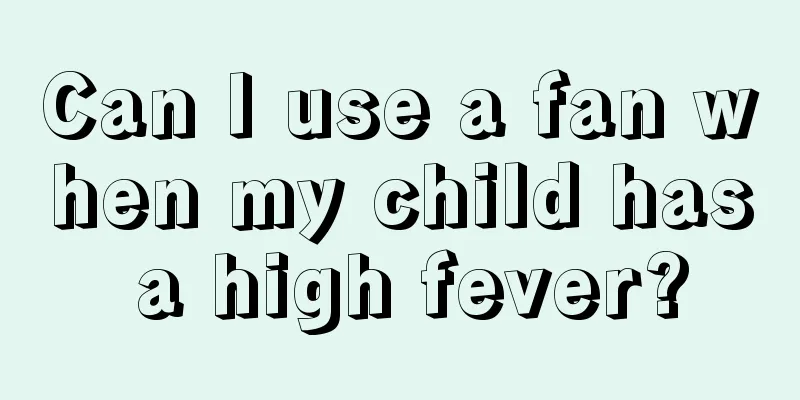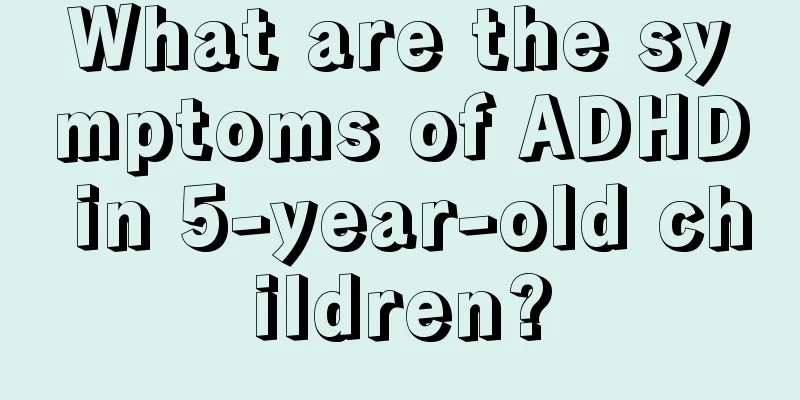What to do if children have iron deficiency anemia?

|
When we have a child, we always want to give him the best. We hold him in our hands for fear of dropping him, and hold him in our mouths for fear of melting him. We always want to give him the most interesting toys, the best food, the most comfortable clothes, and the best growth environment within our capabilities. However, some parents only let their children eat what they like in order to make them happy. Parents must pay attention to the fact that this eating habit may cause anemia in children. 1. Iron therapy Iron supplements are specific medicines for treating iron deficiency anemia. There are many types of iron supplements. Generally speaking, oral inorganic salts are the most economical, convenient and effective method. Divalent iron is easier to absorb than trivalent iron, so it is more commonly used. Commonly used ones are ferrous sulfate, which contains 20% iron; and ferrous fumarate, which contains 30% iron. For the convenience of administration for infants, it is often prepared into a 2.5% ferrous sulfate solution (2.5g ferrous sulfate, 2.9ml dilute hydrochloric acid, 12.5g glucose, 100ml chloroform water). The dosage should be calculated according to the iron element contained. According to experiments, 4.5-6 mg/kg·d, taken in 3 divided doses, is appropriate (after conversion, ferrous sulfate 0.03 g/kg/day; ferrous fumarate 0.02 g/kg/day; 2.5% ferrous sulfate mixture 1.2 ml/kg·d). This amount can reach the maximum limit of absorption. If it exceeds this amount, the absorption will decrease, and the irritation to the gastric mucosa will increase. Excessive dosage may cause poisoning. It is best to take the medicine between meals, which can reduce irritation to the gastric mucosa and facilitate absorption. It should be avoided to take it at the same time as large amounts of milk, because milk contains high phosphorus, which can affect the absorption of iron. 2. Treatment to eliminate the cause Most of the diseases are caused by improper diet, so it is necessary to improve the diet and feed properly. Some mild cases can be cured simply by improving their diet. When improving the diet, the first thing to do is to give the child appropriate food according to his or her age. Because children have poor digestive ability, changing and adding complementary foods must be done with caution. Generally, a few days after the start of drug treatment, when clinical symptoms improve, complementary foods should be gradually added to avoid indigestion caused by increasing food too quickly. For babies around 1 year old, eggs, vegetable puree, liver and minced meat can be added. Infants and children must correct their picky eating habits and be given foods rich in iron, vitamin C and protein. 3. Blood transfusion Because the disease develops slowly and the body's compensatory ability is strong, blood transfusion is generally not required. Blood transfusion is only indicated for patients with moderate anemia, severe infection, or urgent need for surgical operation. For those with hemoglobin below 30g/L, blood transfusion should be performed immediately, but it must be done in small amounts and multiple times, or concentrated red blood cells should be transfused, 2 to 3ml/kg each time. Transfusing blood too quickly or in too large an amount can cause heart failure. If heart failure is severe, transfusion can be used to replace whole blood with concentrated red blood cells. Generally, hepatic erythrocyte sedimentation rate (HRS) is not required. It is understandable that we parents want our children to be happy, but we should not spoil them. Children are relatively ignorant and they need our education. It will not work if we let them develop freely. |
<<: What should I do if mycoplasma pneumonia is infected in my children?
>>: How to treat asthma in children?
Recommend
56-day-old baby development standard
Generally speaking, babies grow rapidly every day...
Treatment of true phimosis in children
Phimosis in children is a very normal phenomenon,...
What to do if your 3-year-old baby has tooth decay
Baby’s problems are what parents are most concern...
How to regulate the stomach of a one-month-old baby
The stomach of newborn babies is very bad because...
Preventing children from getting sick can improve their immunity
The health of the baby is very important to the p...
What are the dangers of allergic asthma in children?
Nowadays, many children suffer from allergic asth...
What to do if children have ingrown eyelashes
Inverted eyelashes are a relatively common phenom...
How to care for a one-month-old newborn
The body of a newborn baby under one month is ver...
Pediatric laryngitis nebulization
The symptom of nebulization of laryngitis in chil...
Treatment for red pimples on baby's body
There are many reasons why red bumps appear on ba...
What to do if your baby boy has urinary tract infection
Women's urethra is naturally shorter and loca...
Measurement and reference standards for height and weight of seven-month-old babies
Babies are the most beautiful and precious gifts ...
Three main symptoms of ADHD in children
ADHD in children often manifests itself in sympto...
Can children drink ginger soup when they have a fever?
Compared with adults, children's body resista...
What are the prevention and control measures for hand, foot and mouth disease?
Hand, foot and mouth disease is a human comorbidi...









